

The Wayang Office Plaza, 5th Floor
Jl. Kedondong No. 5A, RT.11/RW.9
Rawamangun, Pulo Gadung
East Jakarta, DKI Jakarta 13220
Indonesia

Telp: +6221 388-590-01
WhatsApp: +62 899-3300-033
WhatsApp SNI: +62 857-7042-1713

Opening : Mon – Fri, 8:00 – 16:00
Category: KOMDIGI Regulation
-
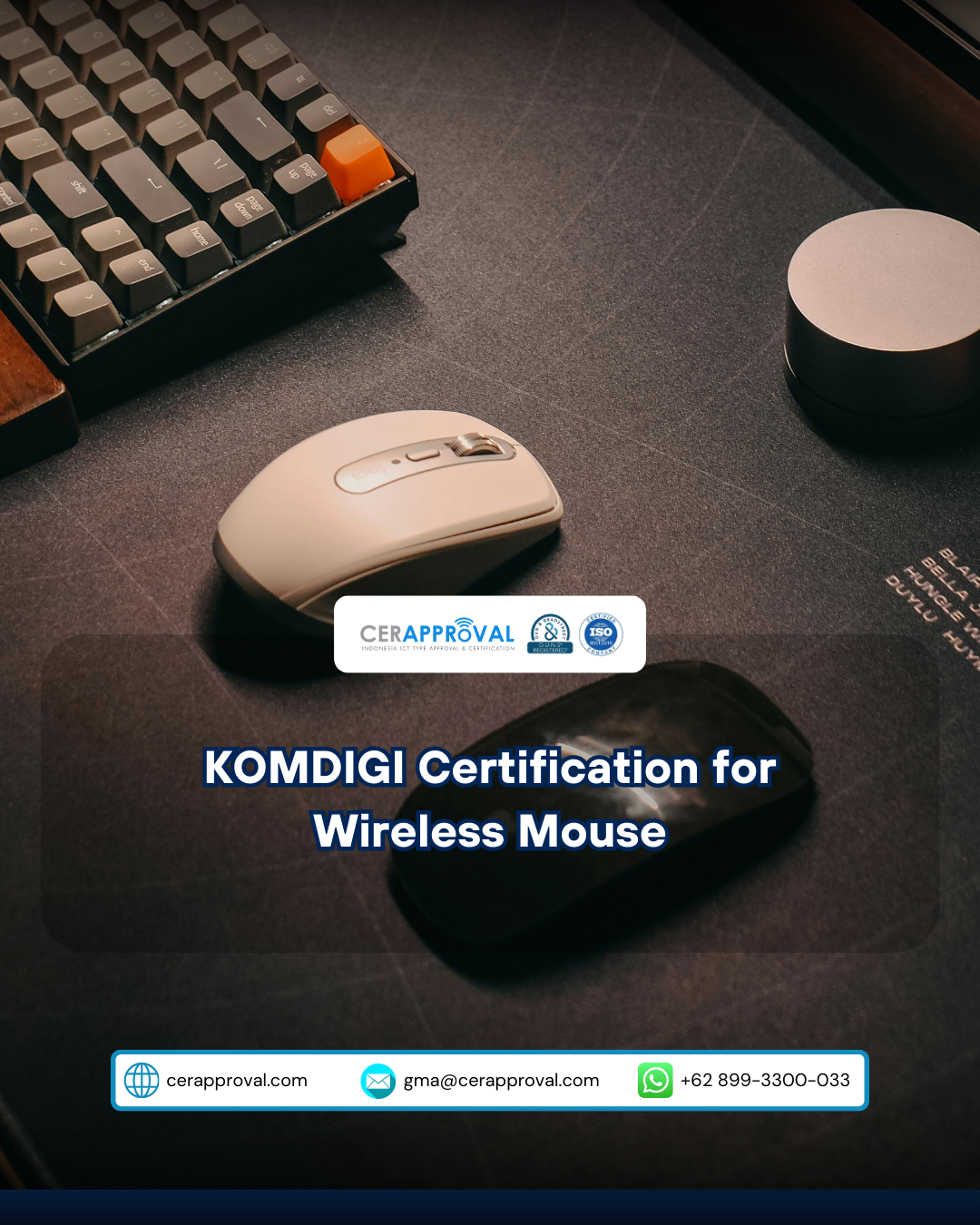
KOMDIGI Certification for Wireless Mouse
Introduction Computer mouse devices especially wireless mouse and Bluetooth mouse contain radio frequency components that fall under Indonesia’s telecommunication device regulations. Before entering the Indonesian market, these products must obtain the Postel Certification, now officially known as SDPPI DJID Certification by the Ministry of Communication and Digital Affairs (Komdigi) As a certification agency, Cerapproval provides…
-
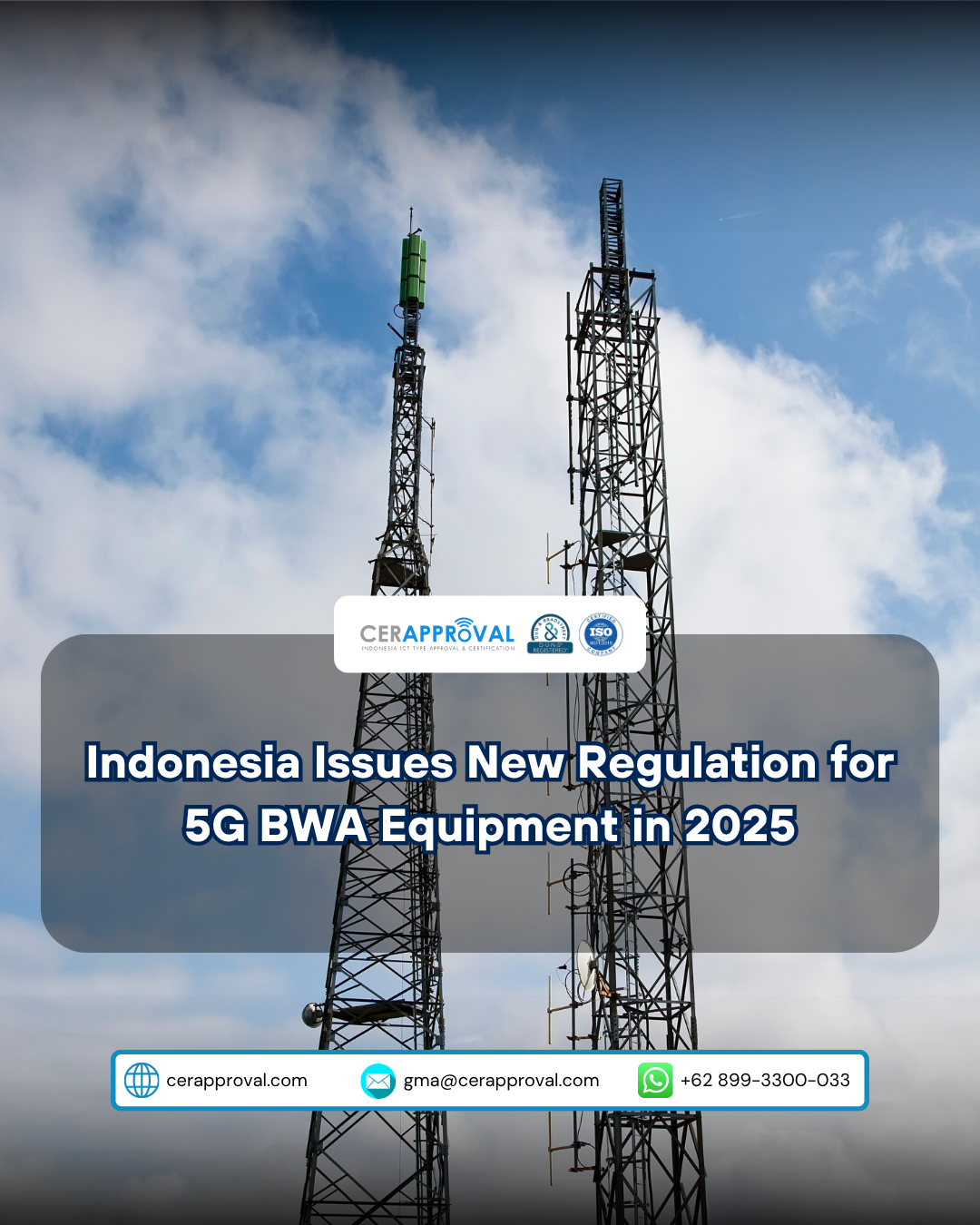
Indonesia Issues New Regulation for 5G BWA Equipment
The Indonesian Ministry of Communication and Digital Affairs (Komdigi) has released a new regulation (KM No. 204/2025) that officially requires all 5G Broadband Wireless Access (BWA) equipment to meet certain technical standards in line with IMT-2020 (5G) and ETSI (European Telecommunications Standards Institute) specifications. Telecommunications Equipment and/or Telecommunications Subscriber Station Broadband Wireless Access Devices Based…
-
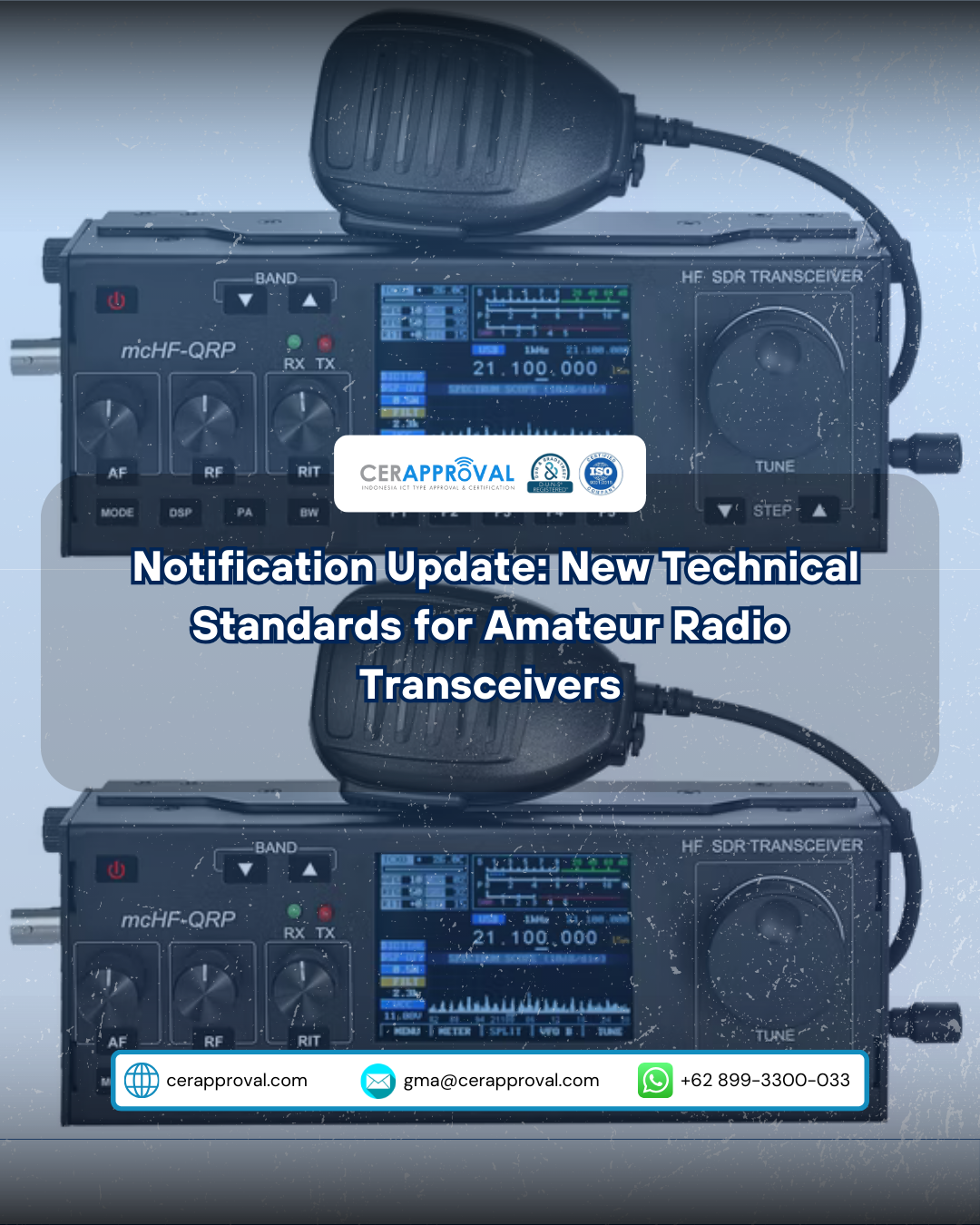
Notification Update: New Technical Standards for Amateur Radio Transceivers
The Indonesian Ministry of Communication and Digital (KOMDIGI) has officially issued Ministerial Decree (Kepmen) No. 44 of 2025 on the Technical Standards for Amateur Radio Transceivers. This regulation was enacted on 18 February 2025 and will officially take effect on 18 August 2025, replacing the outdated standards established in Dirjen Decree No. 80/DIRJEN/1999. This update…
-
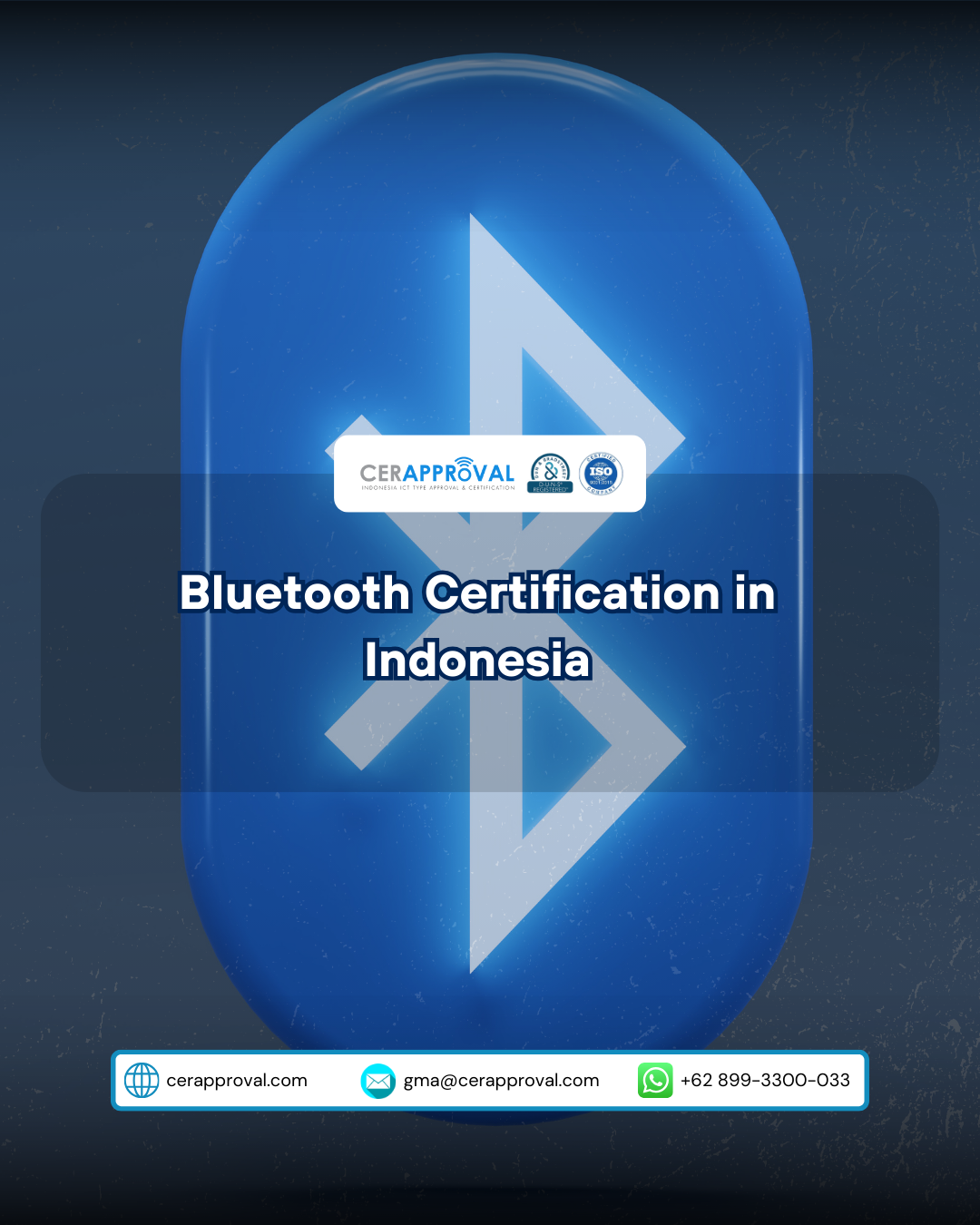
Bluetooth Radio Frequency Certification in Indonesia According to Komdigi
Introduction Bluetooth is one of the most widely adopted wireless communication technologies worldwide. From smartphones, laptops, and headphones to smart home devices and IoT solutions, Bluetooth plays a vital role in short-range connectivity. In Indonesia, the usage of radio frequency, including Bluetooth, is strictly regulated by the Ministry of Communication and Digital (Komdigi) to ensure…
-
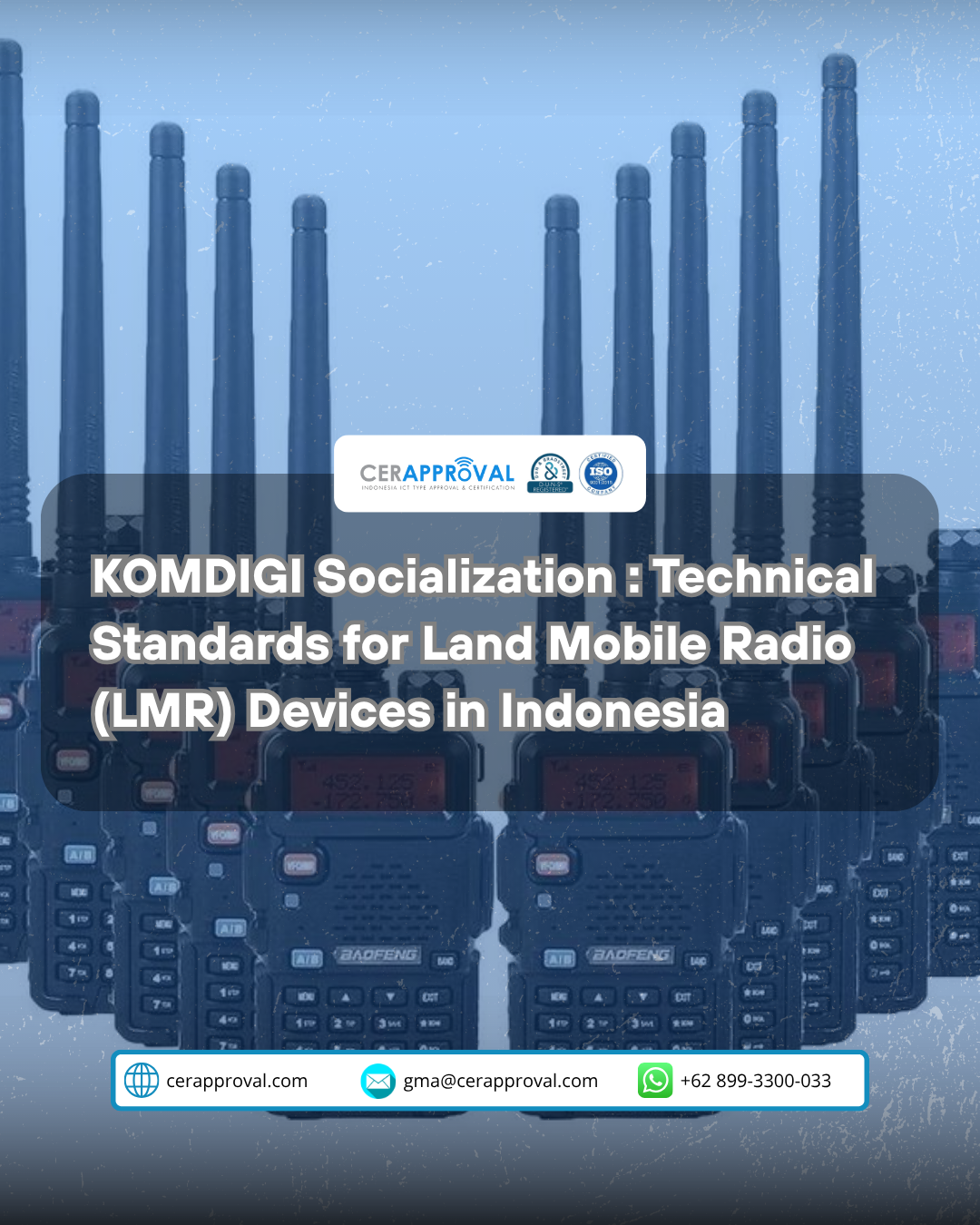
KOMDIGI Socialization : Technical Standards for Land Mobile Radio (LMR) Devices in Indonesia
In today’s interconnected world, Land Mobile Radio (LMR) devices are critical for effective and secure communication, especially in sectors such as public safety, logistics, and industrial operations. To address evolving technology and regulatory requirements, the Indonesian government initiated a Communication and Digital Policy (RKM) socialization to inform stakeholders about the updated technical standards for LMR…
-
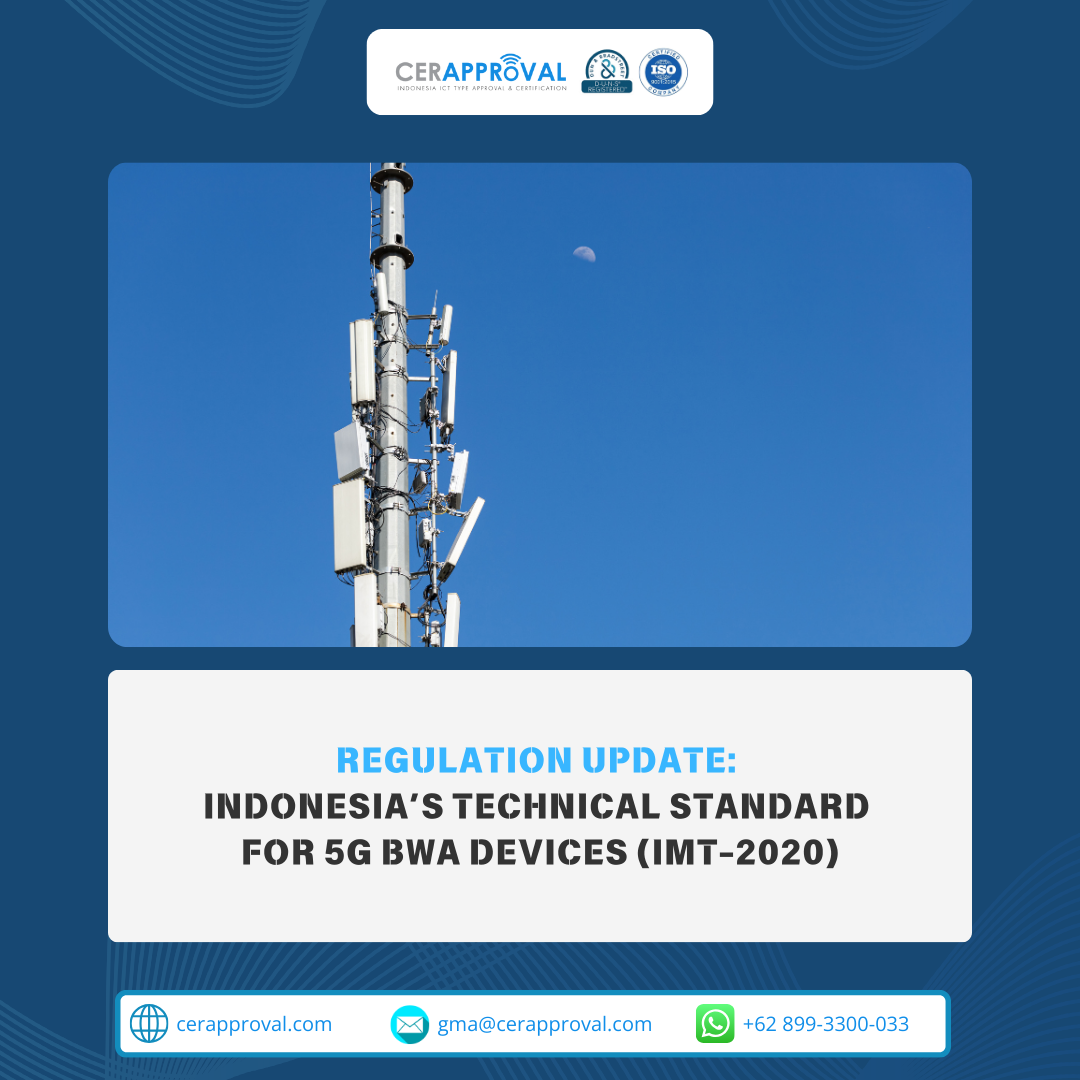
Technical Standards for 5G BWA Devices in Indonesia – KOMDIGI Decree No. 204/2025
Regulation Update: Indonesia’s Technical Standard for 5G BWA Devices (IMT-2020) The Indonesian Ministry of Communication and Digital (KOMDIGI) has issued Ministerial Decree No. 204 of 2025, setting the technical standard for Broadband Wireless Access (BWA) devices based on the International Mobile Telecommunications-2020 (IMT-2020) standard. Scope of the Regulation This decree applies to: Subscriber Stations (SS…
-
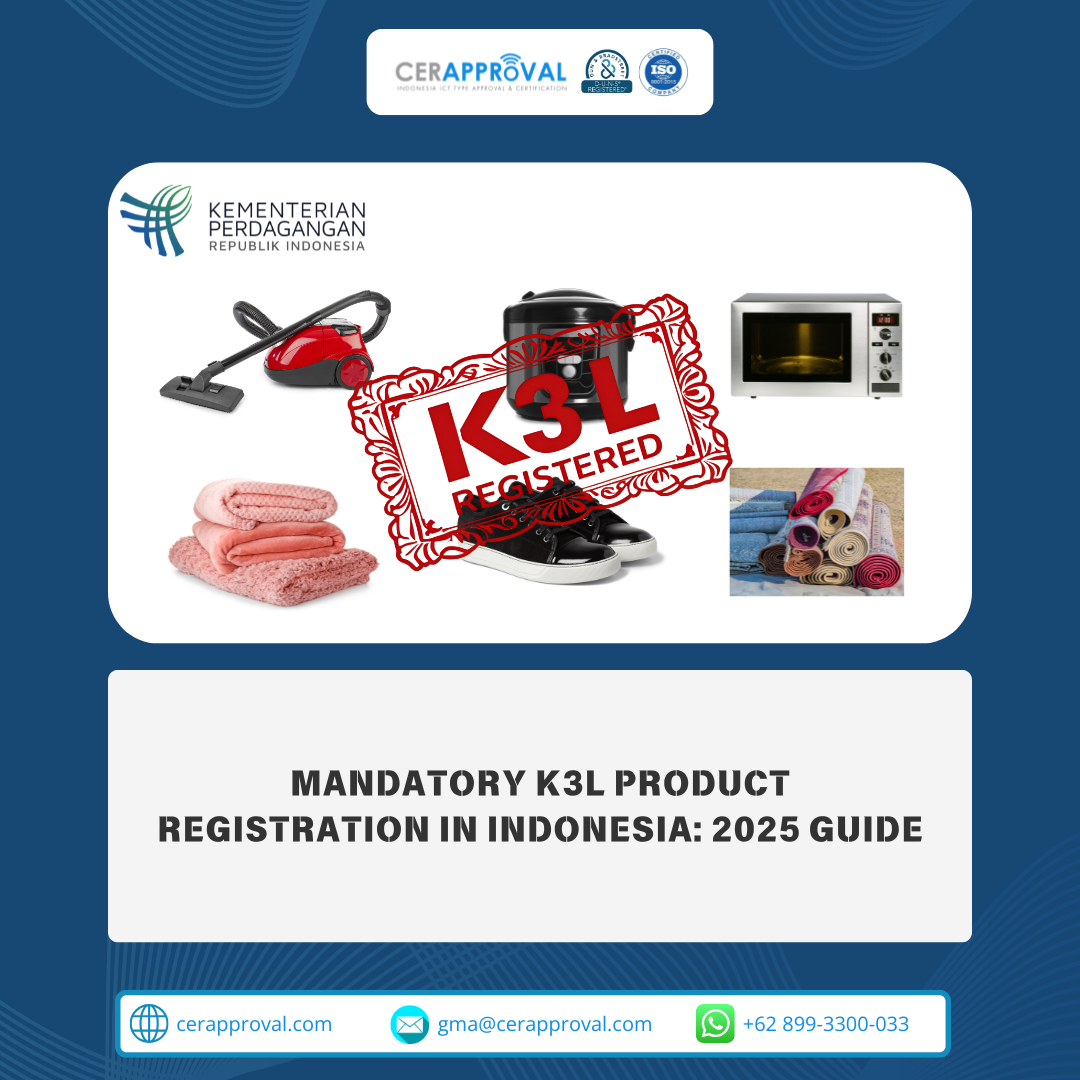
Mandatory K3L Product Registration in Indonesia: Complete Guide for 2025
Mandatory K3L Product Registration in Indonesia: 2025 Guide Indonesia requires product registration under K3L regulations (Safety, Health, Environment) for goods posing risks to consumers or the environment. Under PP 29/2021 and Permendag 26/2021, two main categories of products are mandatory for K3L registration: Electrical & Electronic Products Products Containing Hazardous Chemicals 1. Electrical & Electronic…
-
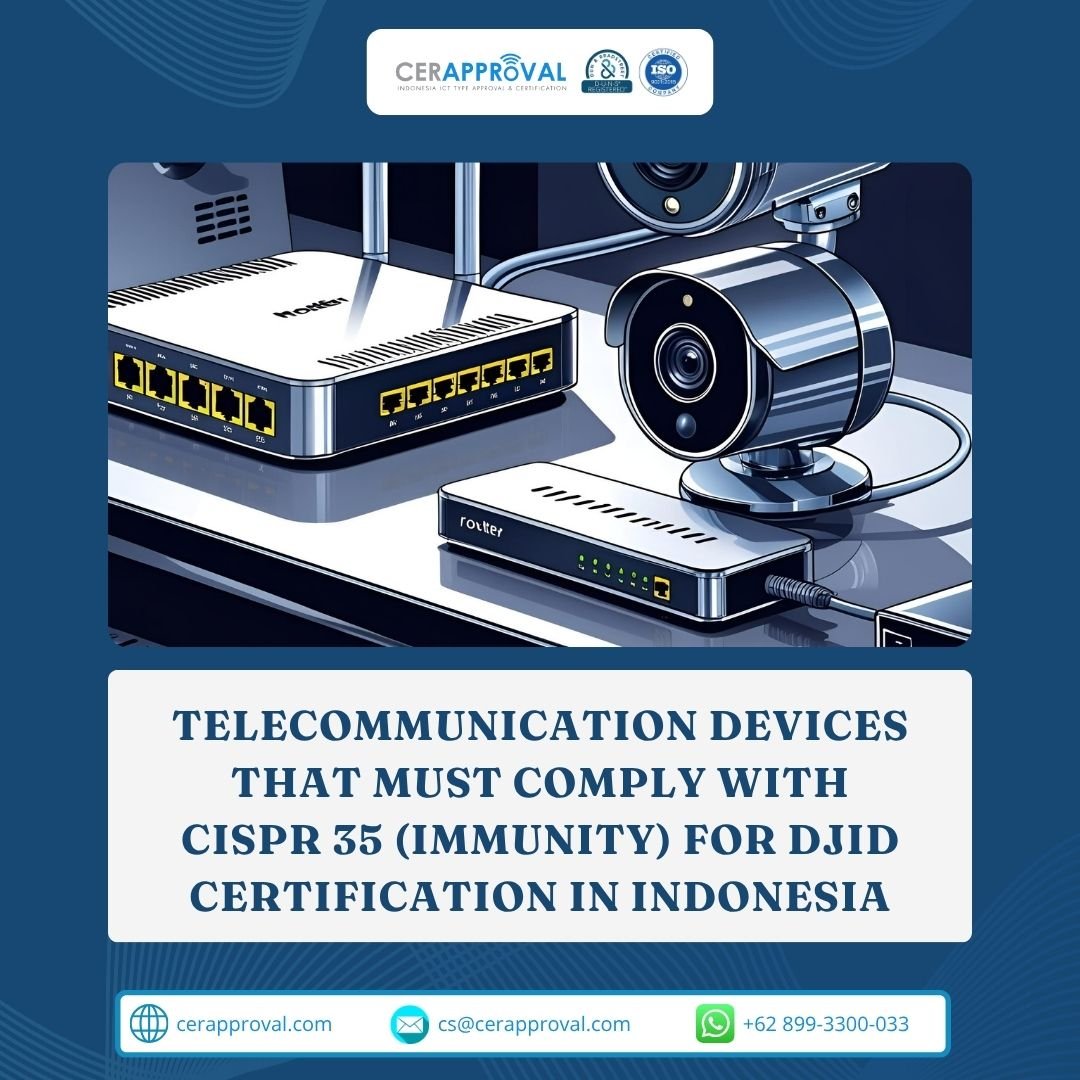
Telecommunication Devices That Must Comply with CISPR 35 (EMC Immunity) for DJID Certification in Indonesia
In 2025, the Directorate General of Digital Infrastructure (DJID) — formerly known as SDPPI Kominfo — will officially require EMC immunity testing according to CISPR 35 standards for various telecommunication devices submitted for certification in Indonesia. This regulation is part of the government’s effort to harmonize national certification standards with international best practices and to…
-

Nemko Korea Approved as Official MRA Test Lab for DJID Certification in Indonesia
Effective May 27, 2025, the Ministry of Communications and Digital Affairs of the Republic of Indonesia (KOMDIGI), through the Directorate General of Digital Infrastructure (DJID), has officially approved Nemko Korea Co., Ltd. as a recognized foreign testing laboratory under the Mutual Recognition Arrangement (MRA) framework. This approval enables Nemko Korea to issue test reports that…
-

Indonesia Enforces New Technical Standard for Free Space Optics (FSO) Devices – Ministerial Decree No. 43/2025
Effective May 18, 2025, the Ministry of Communication and Digital (KOMDIGI) has officially enacted Ministerial Decree No. 43 of 2025 regarding the Technical Standards for Free Space Optics (FSO) Telecommunication Devices in Indonesia. This regulation replaces and invalidates the previous Ministerial Decree No. 59 of 2022, which is now revoked. What’s Covered in Ministerial Decree…
Ready To Start New Project With Intrace?
Lorem ipsum dolor sit amet, consectetur adipiscing elit, sed do eiusmod tempor incididunt ut labore et dolore magna aliqua.
